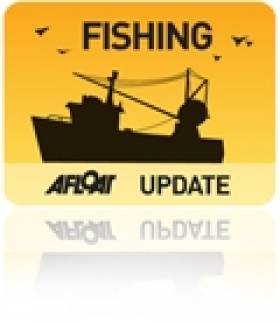Displaying items by tag: EIS
#Fishing - The Irish Times reports that Inland Fisheries Ireland (IFI) has expressed "serious concerns" over the findings of a new study on wild salmon in Ireland.
The State agency for Ireland's fisheries argues that the study - which concluded not only that pollution has a greater impact on wild salmon numbers than fish farming, but also that salmon catchments in close proximity to aquaculture schemes were some of the best performing - is based on flawed methodology.
IFI is among the chorus of voices opposed to the planned organic salmon farm off the Aran Islands in Galway Bay - a 500-hectare project by Bord Iascaigh Mhara (BIM) that would be the largest of its kind in Europe if given the go-ahead.
Marine Minister Simon Coveney recently attempted to alleviate concerns over the controversial scheme, claiming there would be no damage to the environment or fish stocks.
However, the controversy doesn't end there, as last month celebrity chef and 'Slow Food' champion Darina Allen wrote to the minister over erroneous claims in BIM's environmental impact statement (EIS) for the project.
As reported by the Galway Independent, Allen contacted Minister Coveney to clarify that the Slow Food movement does not support fish farming projects, after references to the initiative in the EIS "seemed to create a lot of confusion".
Allen told the paper: “Many people contacted me under the perception that Slow Food endorsed the whole salmon farm thing and actually Slow Food has made no statement whatsoever on it.”
Later, Michèle Mesmain of Slow Food International confirmed that “salmon farming does not fit in any pillar of Slow Food”.
The Galway Independent has much more on the story HERE.





























































